Indigenous Governance Database
fisheries management
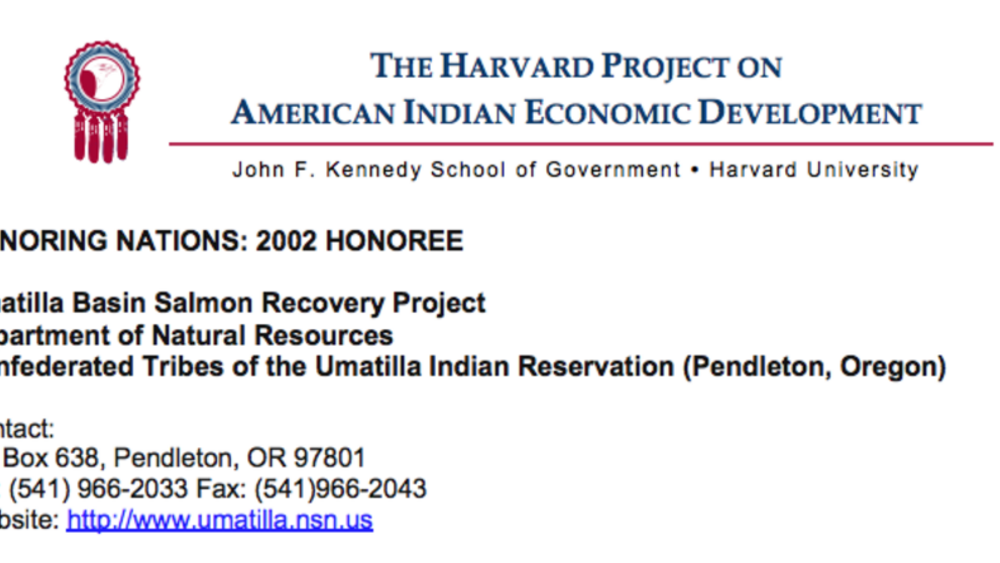
Umatilla Basin Salmon Recovery Project
The Umatilla Basin Salmon Recovery Project has successfully restored salmon to the Umatilla River, where they had been absent for nearly 70 years, while also protecting the local irrigated agriculture economy. Partnering with local irrigators and community leaders, the tribe undertook a…
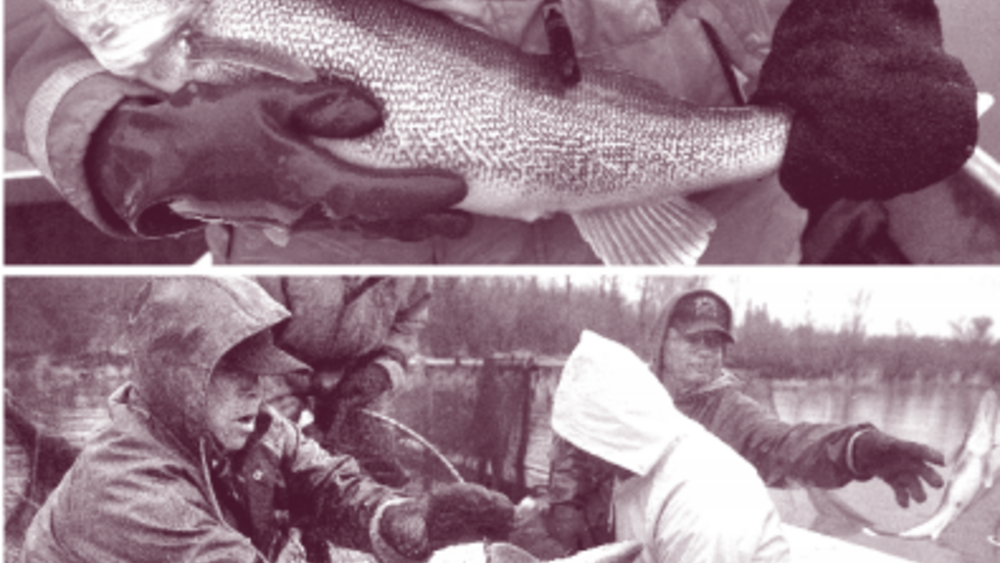
We Are the Stewards: Indigenous-Led Fisheries Innovation in North America
This paper offers an overview of the current state of Indigenous-led fisheries management in the United States and Canada. It summarizes major trends in Indigenous-led fisheries innovation in North America and presents common keys and challenges to the success of these efforts. It chronicles three…

Honoring Nations: Jon Cooley: Building Capable Institutions of Self-Governance: White Mountain Apache Wildlife and Recreation Program
Jon Cooley, former director of the White Mountain Apache Tribe's Wildlife and Outdoor Recreation division, discusses how their program went about building capable institutions of self-governance in order to manage the Tribe's natural resources -- specifically wildlife -- in a sustainable manner.

Great Tribal Leaders of Modern Times: W. Ron Allen
Produced by the Institute for Tribal Government at Portland State University in 2004, the landmark “Great Tribal Leaders of Modern Times” interview series presents the oral histories of contemporary leaders who have played instrumental roles in Native nations' struggles for sovereignty, self-…

Maamakaadenbaagwad (it is amazing): The Miracle of the Walleye
This video, produced by the Red Lake Department of Natural Resources and the youth at Project Preserve, explains the history and progress of the Red Lake Walleye recovery program.
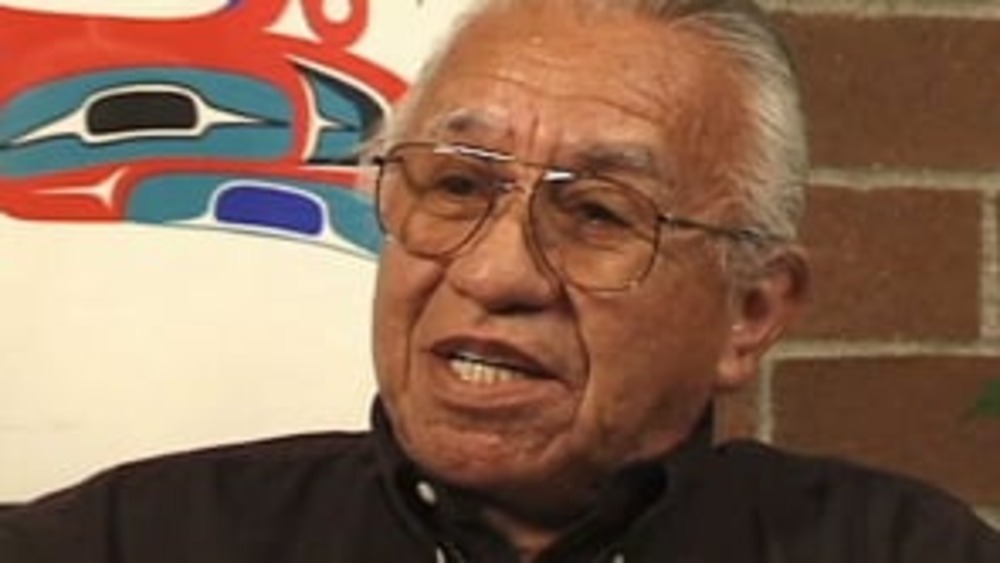
Great Tribal Leaders of Modern Times: Billy Frank, Jr.
Produced by the Institute for Tribal Government at Portland State University in 2004, the "Great Tribal Leaders of Modern Times" interview series presents the oral histories of contemporary tribal leaders who have been active in the struggle for tribal sovereignty, self-determination, and treaty…
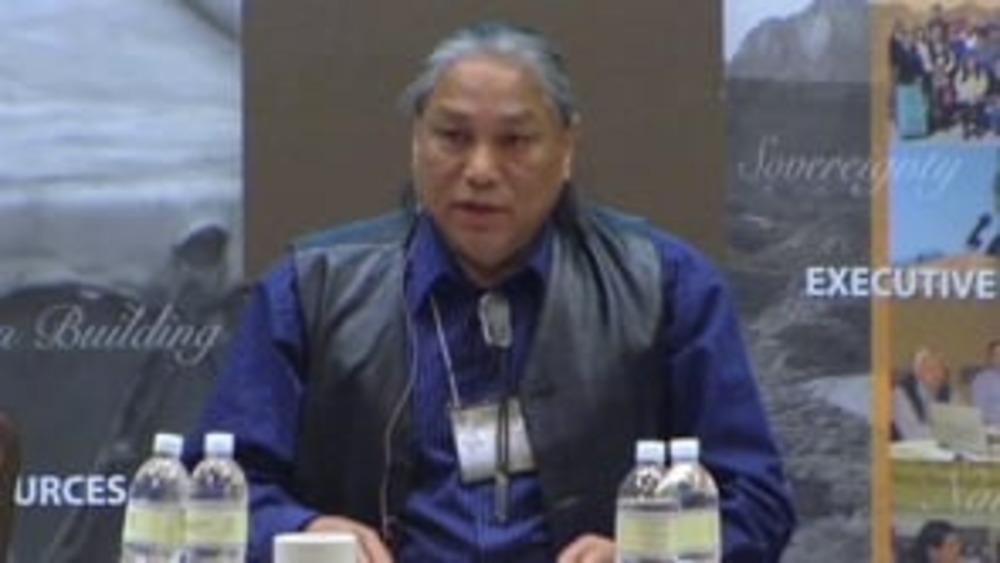
Denny Hurtado: Addressing Tough Governance Issues
Former Skokomish Tribal Nation Chairman Denny Hurtado discusses how he, his fellow leaders and his nation exercised its sovereignty in order to navigate past some tough governance challenges to fund their government, restore their land base, and protect their natural resources.
Honoring Nations: Kristi Coker-Bias and Allen Pemberton: The Citizen Potawatomi Community Development Corporation and the Red Lake Walleye Recovery Program (Q&A)
Honoring Nations symposium presenters Kristi Coker-Bias and Allen Pemberton field questions from the audience about the Citizen Potawatomi Community Development Corporation and the Red Lake Walleye Recovery Program.
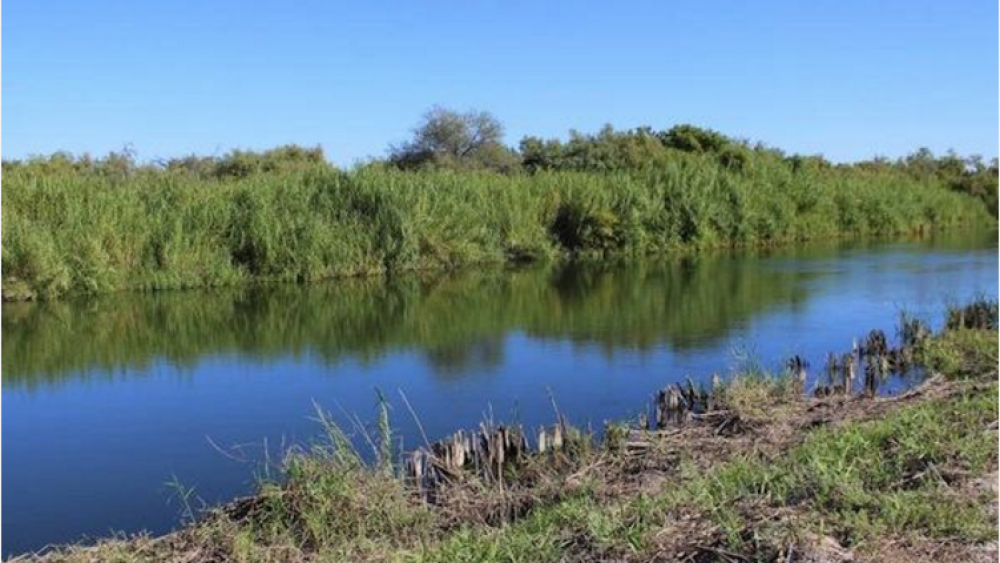
7 Tribal Programs That Protect Our Winged and Four-Legged Brothers
The news is full of sad stories about dying animals, species of all kinds being wiped out, and the random shooting of animals, among other depressing events. Amid all that it’s easy to forget that efforts aplenty are afoot to reverse the declines, save species, restore habitat and pull endangered…
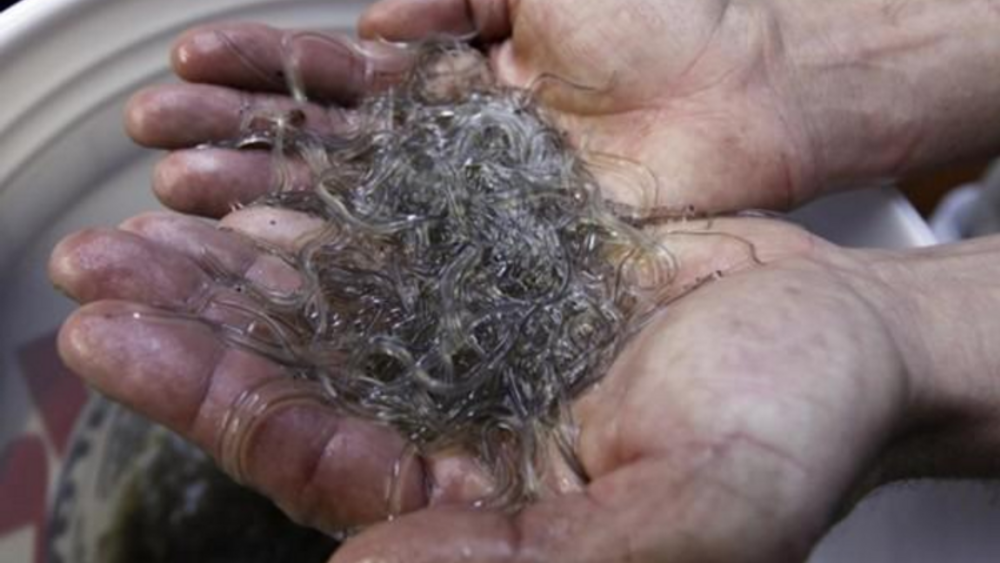
Passamaquoddy Tribe Amends Fishery Law to Protect Its Citizens from State Threat
The Passamaquoddy Tribe’s fishery law has been amended to implement individual catch quotas for the lucrative elver season that began on April 5. While the quota system conforms to a new state law, Passamaquoddy leaders stressed that the change was made to both protect tribal citizens and conserve…
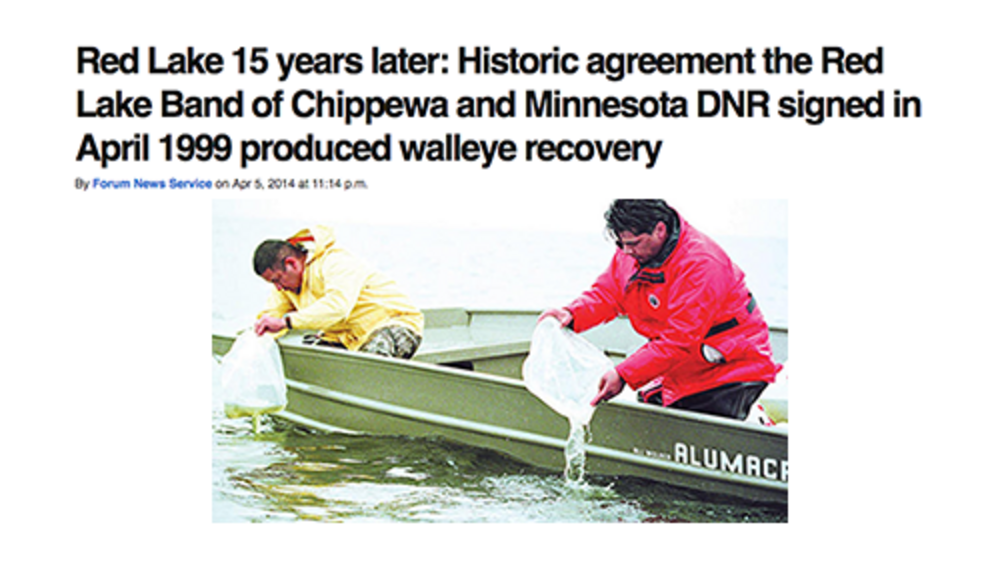
Red Lake 15 years later: Historic agreement the Red Lake Band of Chippewa and Minnesota DNR signed in April 1999 produced walleye recovery
As Al Pemberton recalls, it was about three years after the Red Lake Band of Chippewa and the Minnesota Department of Natural Resources signed an agreement to restore walleye populations in Upper and Lower Red lakes that he saw the true potential for the big lakes’ recovery. The agreement, which…
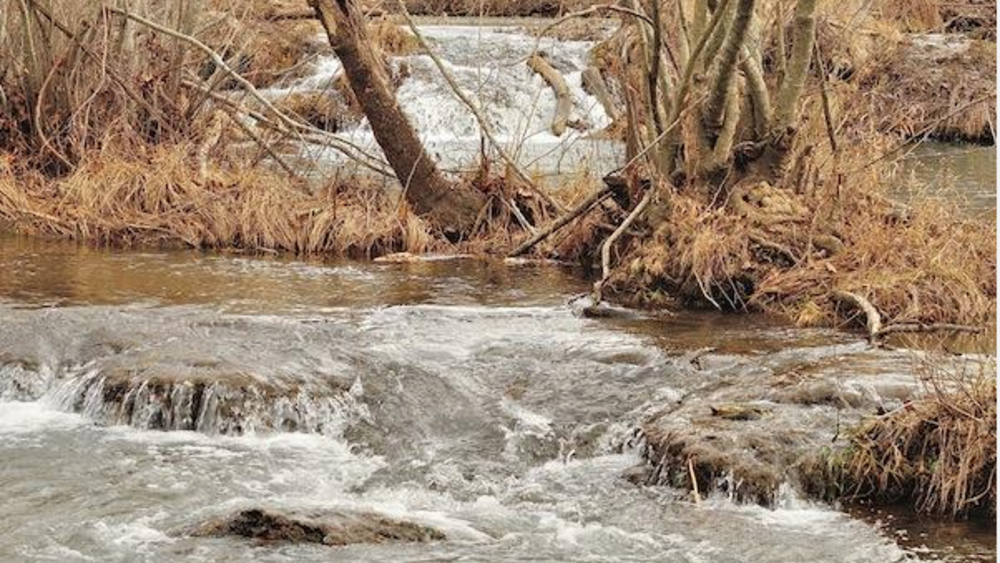
Chickasaw Fishery Saves Endangered Species While Sustaining Fishermen and Tourism
Nothing elevates the hope and heart rate of an angler more than hearing that first predawn “ZWIIINNGGG” of a casting reel as fishing line slices through the early morning air and the lure plops into the water. Whether it’s the first or last day of the season, fishermen hope that is a dinner bell…
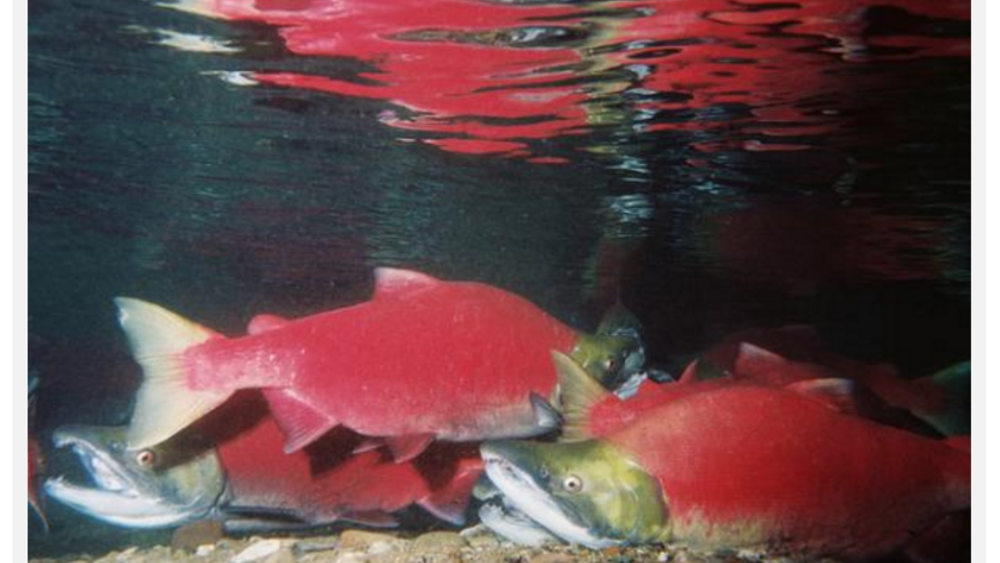
Fisheries Are the Lifeblood of the Nez Perce Economy
The Nez Perce Tribe has the second largest economic impact in North Central Idaho and is the third largest employer in the region. The massive fisheries program which employs upwards of 180 people is a major contributor to those statistics. Fish have always been vital to the tribe. Salmon in…
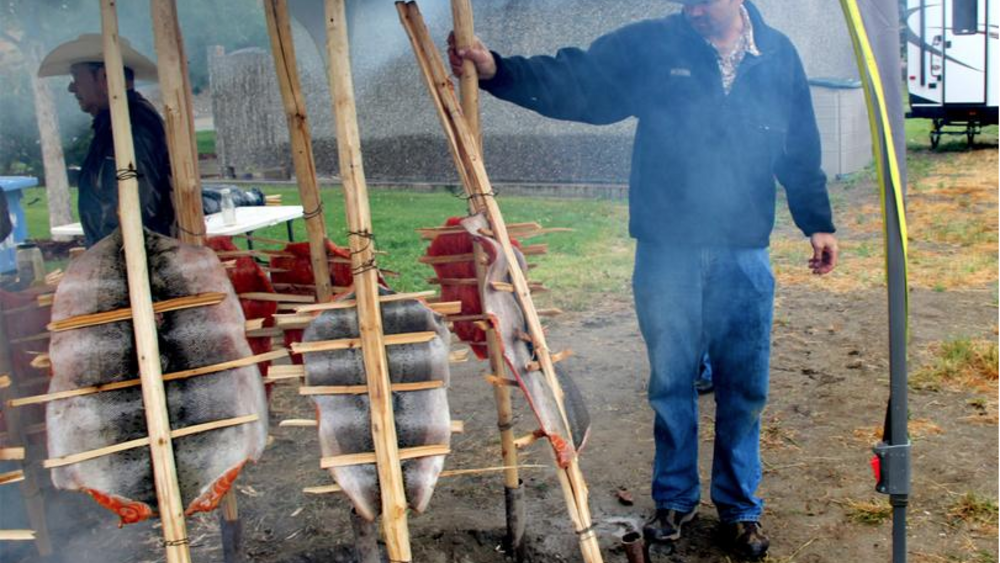
Colvilles celebrate $50 million hatchery
Cheers went up when Colville tribal fisherman Mylan Williams hauled a 20-pound chinook out of the Columbia River with a dip net. Then hats came off in a show of respect. Tribal elders circled the fish and sang, honoring the salmon that gave up its life to feed the people. For thousands of years,…
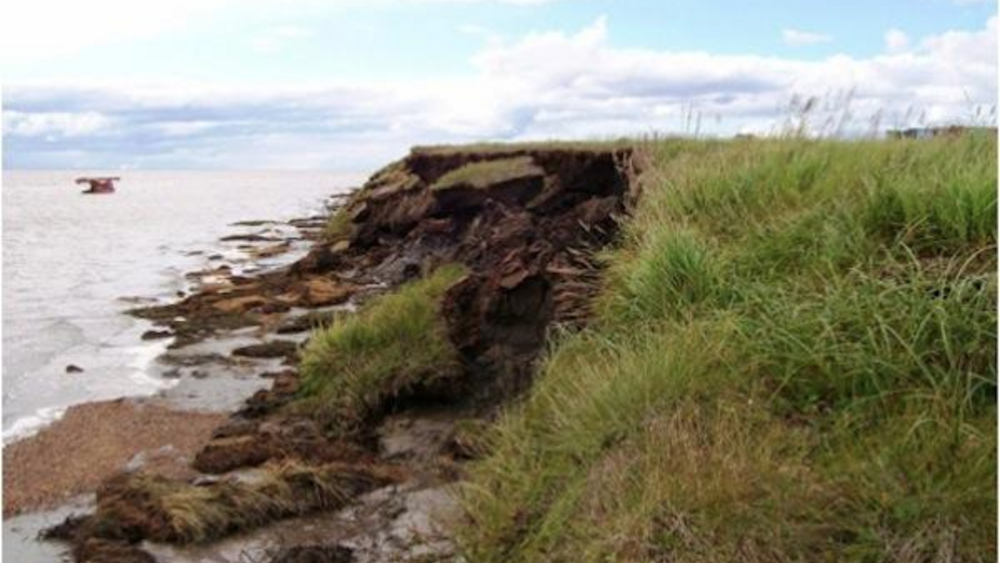
8 Tribes That Are Way Ahead of the Climate-Adaptation Curve
Much has been made of the need to develop climate-change-adaptation plans, especially in light of increasingly alarming findings about how swiftly the environment that sustains life as we know it is deteriorating, and how the changes compound one another to quicken the pace overall. Studies, and…
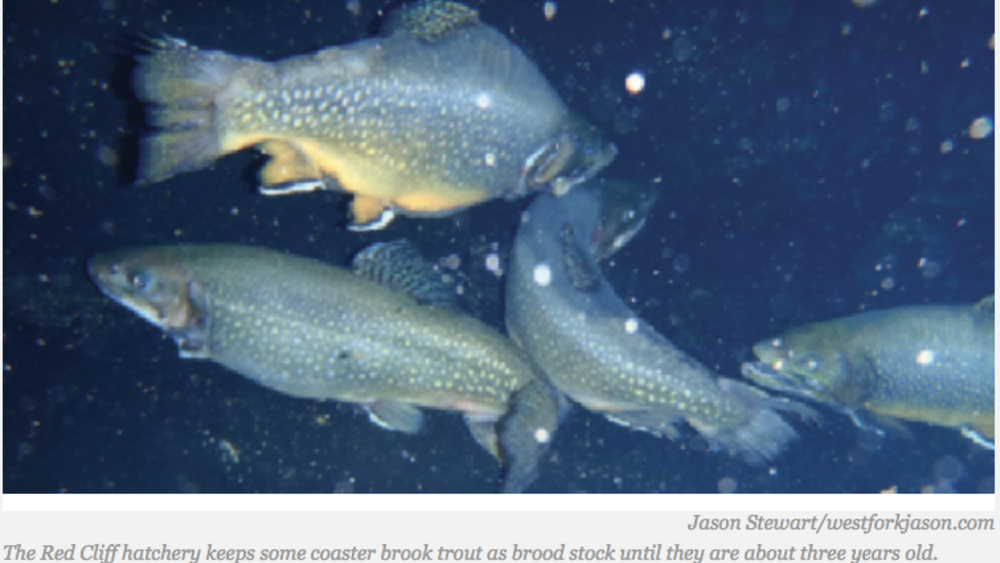
Investing in Fish, Preserving Red Cliff Culture
Small fingerlings roiled the water in the translucent plastic tubs placed before ready volunteers in the Red Cliff tribal fish hatchery at Wisconsin’s northern edge. The agitated three- to six-inch coaster brook trout–known as fry–made the water appear to be boiling. A mild anesthetic was added and…
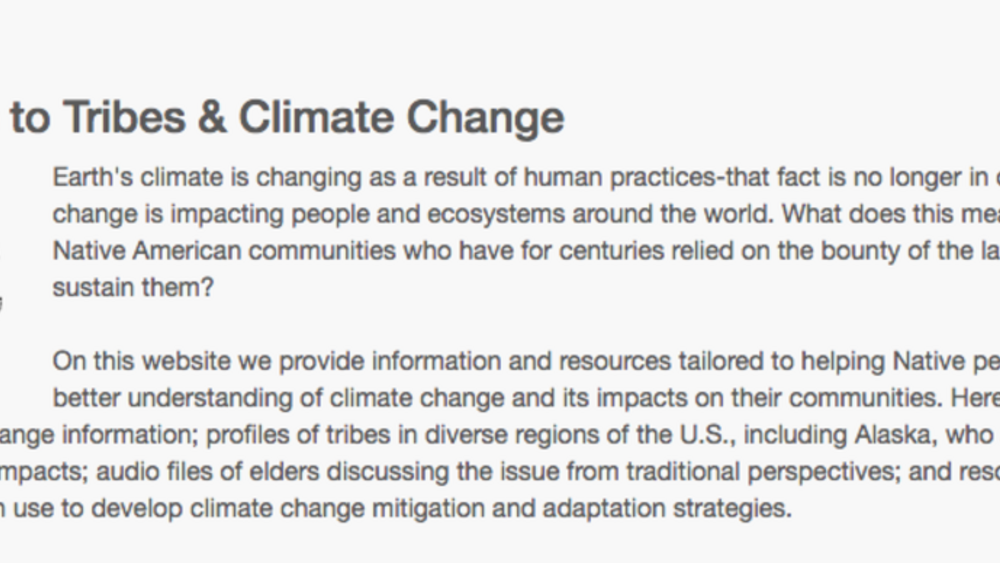
Mescalero Apache Tribe: Innovative approaches to climate change adaptation
There is no disagreement that the climate in the Sacramento Mountains has been getting warmer and dryer in recent years. Indeed, the temperature and drought regimes of late have been described as extreme by state meteorologists. The winter season, the period of time between the first freeze and the…
